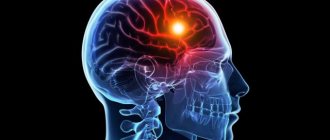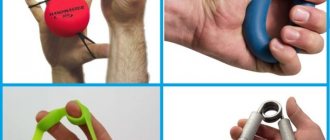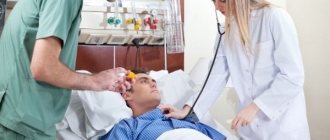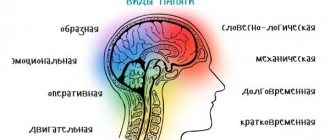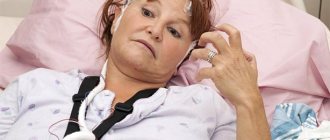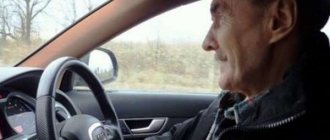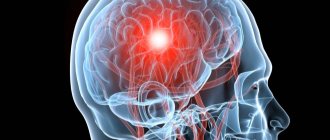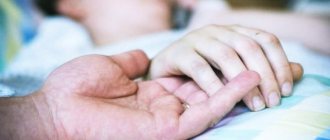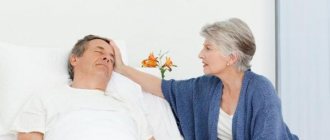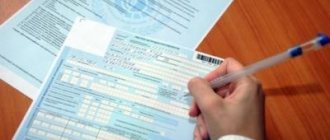- 1st disability group. This group assumes that a person is not able to provide for his or her life activities independently and needs care. Unfortunately, after a stroke, many people are assigned this particular disability group. Employment in this case is possible only in exceptional situations and only in accordance with an individual rehabilitation program.
- Disability group 2. Disabled people of the second group can partially support themselves, but the presence of this group after a stroke indicates significant health problems and implies difficulties in finding employment and the ability to work only for a limited amount of time and under special conditions.
- 3 disability group. This group of disability for stroke does not imply a complete lack of ability to work. Moreover, employers in the Russian Federation are set mandatory quotas for the employment of people with disabilities. At the same time, disabled people have a wide range of social guarantees, and their employment in any case must comply with the employee’s individual rehabilitation program issued by a medical institution.
Return to work
The negative impact of a stroke on the patient’s condition depends on how severe the disruption of blood circulation in the brain was during the stroke and on the source of the lesion - the more the brain is damaged, the stronger the disturbances in mental, intellectual, motor and motor functions will be.
As a rule, the restoration of speech, motor and visual functions occurs gradually - the first improvements appear already after three days after the stroke.
But we must not forget that rehabilitation is a long process, and if you give the body a load too early, there is a risk of another stroke.
The patient's involvement in work activity should be gradual. After discharge and completion of the main recovery process, it is better to switch to a reduced schedule or switch to working from home.
Important! In order to accustom your body to work, you can start working a little in the country. This way, moderate physical force is used and the body gains endurance.
Working conditions provided for disabled people
If a medical examination has recognized the patient’s limited ability to work and he has been asked to work from home or under easier conditions, then they should be as follows:
- the work place should be located away from temperature changes and strong vibration;
- during the working day, the patient should not remain in one position for a long time - the place should be comfortably equipped;
- activities should exclude excessive stress on the emotional, mental and physical sphere;
- no contact with household toxins.
With severe financial difficulties, many patients earn money not only at their main job, but also at home, completing simple orders according to their profile, taking advantage of a reduced working day. This is a natural need for a person, but it is better to undergo a full rehabilitation course and prove your ability to work for VTE in a year than to expose yourself to the risk of another stroke due to overwork and stress.
When can you start working?
As a rule, the minimum rehabilitation period after an ischemic stroke is three months, after a hemorrhagic stroke - six. If the doctor and examination have determined that the consequences of the blow have been completely eliminated , you can go to work.
For some patients, rehabilitation takes years. In this case, the patient is assigned a disability, which implies either the inability to work at all, or a transition to easier work that is not associated with nervous overload.
In any case, whether a person can go to work or whether it is worth continuing treatment is decided only by the attending physician.
Why is it important to work after a stroke?
Patients who have survived a cerebral hemorrhage are susceptible to depression and apathy during the rehabilitation period, due to the inability to cope with things that they could easily do before. Worrying about one’s own uselessness does not in any way contribute to speeding up recovery; on the contrary, the patient gives up and thinks that he will not return to what he loves. For this reason, the patient’s loved ones must create conditions in which he can restore confidence in his own abilities, remember and consolidate lost motor skills.
This could be a favorite hobby related to knitting, embroidery, design, or simple help with housework, in accordance with the person’s functional capabilities. Rehabilitation after a stroke and returning to work in the same place is a long process, which sometimes drags on for years - to return to full-time work, you need to restore cognitive and motor abilities as best as possible.
Assessing the possibility of returning to work
After the first stage of rehabilitation, doctors and the patient themselves determine whether such serious consequences remain as:
- disturbance of speech perception - does the patient understand the speech addressed to him, can he independently read and understand the meaning of what he read;
- loss of coordination;
- absent-mindedness, inattention;
- partial or complete loss of hearing or vision;
- difficulty swallowing food or drinks;
- impairment of motor activity.
If at least two of the listed symptoms do not disappear, there can be no talk of returning to work.
Don't make a mistake yourself
As sad as it may be, most often “the rescue of a drowning person is the work of the drowning person himself.” You should not expect the state or the “good wizard” from the fund to provide you with a lucrative job.
Even those who are sitting are able to perfectly settle down and socialize in the modern world. Those of them who feel best are those who have found a skill with which they can earn extra money on their own, and not just feed “someone else’s uncle.”
These skills typically relate to the service industry, household services, maintenance and construction services of a one-time nature. Many former prisoners decide to start their own business. Here are three stories of people who became successful thanks to their intelligence and entrepreneurship.
Once convicted of drug distribution, Grigory got a job as a janitor after his release. Six months later, he bought an old Gazelle and took up cargo transportation as a part-time job. A year later I was able to buy another “workhorse” and hired people. Now Georgy owns a whole fleet of trucks and is himself an employer of a couple of dozen people.
Igor and Anton met each other while still in the same prison - they agreed on their love for car repair. Igor was the first to be released and spent six months in freedom doing odd jobs. Then Anton was freed too. “Friends in misfortune” met, remembered their common hobby, and decided to combine their knowledge, experience and capabilities to open an “economy tire service.” Igor found premises, old equipment and the first clients, Anton was engaged in car maintenance. This is how their joint business began. Now the old change house with a tire service has turned into a reputable car service center.
Vladimir was in prison three times. Having freed himself, he went into business and founded a denim clothing company. Currently, this is the largest corporation in Russia, which develops, produces and distributes jeans and casual clothing for children, youth, women and men.
There are a great many such stories. They all prove that limitations exist only in the head, but in life anything is possible. There will definitely be work, but the road can only be mastered by those who walk. You just have to want it and never despair.
Passing a medical labor examination
The examination involves a complete examination of the patient who has suffered a stroke in order to prepare a medical report on several points:
- can a person go to work now or does sick leave need to be extended;
- if the patient is ready to work, under what conditions can he perform it;
- start date of employment;
- possibility of disability.
The examination is carried out, as a rule, by several doctors - a therapist, a neurologist, a cardiologist, and an ophthalmologist. All previously obtained ultrasound or MRI results are collected, the patient undergoes tests, is interviewed by doctors, and the neurologist conducts standard tests for reaction and memory.
Important! It is imperative to obtain an opinion from an eye doctor - after an impact, vision can be greatly impaired, so it will be impossible to return to some professions.
What doctors check first:
- Have your mental abilities been restored?
- psychological condition;
- to what extent visual and speech functions are impaired;
- muscle tone;
- state of the cardiovascular system;
- Are there any coordination problems?
If the consequences of a stroke are minor, the VTE issues a work permit. In some cases, if the patient has not fully recovered, but is ready to start work, the commission and the employer may offer an easier employment option:
- reduced working hours (for example, half the rate);
- transfer to another position with easier working conditions;
- transition to working from home or on an individual schedule (for example, every other day).
Note: If the condition of a person who has suffered a stroke does not allow any complex activity and his health is severely compromised (for example, some brain functions have not fully recovered, vision or hearing is severely impaired, limbs are partially or completely paralyzed), then VTE may not issue a work permit and recommend the patient apply for disability.
Before you get free
In 2006, the Ministry of Justice approved instructions for assisting released convicts in finding employment (Order of the Ministry of Justice of Russia dated January 13, 2006 No. 2)
Six months before the release of the prisoner, they begin to prepare for a free life: in the correctional institution (PI) they conduct various conversations and classes with him. Including, at the request of the released person, the correctional institution is obliged to provide him with assistance in finding work and everyday life. To do this, the institution notifies the self-government bodies and the employment service at the place of residence chosen by the convicted person about his upcoming release, the availability of housing, his ability to work and available specialties.
If they answer that there are no suitable places, then the inspector for the labor and living conditions of convicts should continue to work on this issue, but in other areas. Of course, if the person being released agrees.
Also, convicts can travel outside the correctional facility to independently resolve their issues regarding work and housing, but for no longer than 7 days (not counting the time for travel there and back).
In addition, since March 2021, an agreement has been in force between the FSIN and the Federal Service for Labor and Employment (Rostrud) to assist those released from correctional institutions in finding employment. Rostrud is the operator of the electronic vacancy database “Work in Russia”, which contains current offers from employers and job seekers from all regions of the country. The employment of former prisoners takes place through this system.
But often such measures exist only on paper: prisoners often have not heard about social adaptation, and there are difficulties with work even in the correctional institutions themselves. The FSIN is even less concerned with the fate of those who have already left the walls of the “state house”.
What job can you not return to?
Even if the medical commission has recognized the person’s readiness to begin professional activity, it is necessary, in order to avoid a second blow or complications, to exclude the presence of harmful factors in the profession or at the workplace, such as:
- greatly increased or decreased air temperature;
- working for a long time on your feet or in one extremely uncomfortable position;
- the presence of stress, the possibility of physical fatigue;
- interaction with harmful, toxic substances.
That is, heavy physical labor, work as a truck or bus driver, managerial positions associated with constant stress, work as an industrial climber or foundry worker in a workshop become unavailable to patients - at least for several years after a stroke.
For example, it is possible to work as a watchman after a stroke, because it does not require much effort. But the position of a security guard, for example, in a store, is contraindicated: you need to stand on your feet for a long time and be very attentive.
Important! There is no need to rush to return even to light work, which is in one way or another associated with increased psychological stress . Any stress can cause a jump in blood pressure, which will trigger another stroke.
Not without good people
In each region there are public organizations dealing with the problems and protection of the rights of convicts . Lawyers and advocates, through the courts, help them compensate for harm and restore their housing and labor rights.
